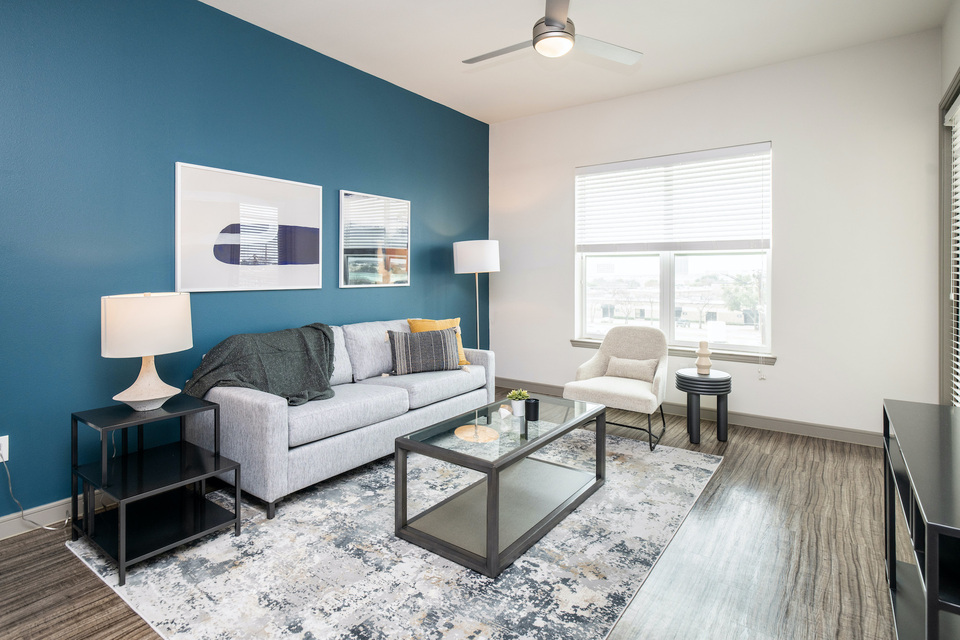
Top 7 Airbnb Alternatives To Consider in 2024

In a post-Airbnb world, there are too many platforms to search for your perfect home away from home. Here are seven of our favorite Airbnb alternatives.
If you’re planning a trip or extended stay in a new city, looking at Airbnb might be your first instinct. The vacation rental giant changed how the world travels, making shared spaces and privately managed holiday rentals as enticing as upscale hotels.
Although Airbnb is a popular hub for searching for temporary accommodations, it’s not the only option. There’s an entire industry of short and extended-stay rentals with dozens of Airbnb alternatives, catering to a wide set of lifestyles and consumer needs.
Whether you’re traveling for a weekend or a year, here’s a list of the best Airbnb alternatives. All you have to worry about is packing your bags.
What’s Similar to Airbnb? The 7 Best Platforms for Renters in 2024
Whether you’re looking for a sublease in Denver, affordable short-term housing in a pinch, or a business stay in Austin, here are seven sites like Airbnb to check out:
1. Landing
Landing tops the list of Airbnb alternatives — and not just because of its extensive catalog of apartment rentals across more than 375 cities. The real game-changer is Landing’s attention to a transparent, hassle-free experience. Even as the platform grows to more than 20,000 apartments across the U.S., dedicated account managers ensure a personalized experience from picking your rental to checking out smoothly.
Landing also curates and manages its entire inventory, ensuring consistent quality standards across all its properties. Each place comes fully furnished and stocked with all the essentials, from welcome snacks to ironing boards. On top of that, most properties have amenities like pools and gyms, and 99% accept pets. Airbnbs are built for travel, but Landing’s meant for living.
Whether you’re on a quick business trip to Dallas, a traveling nurse on assignment in Denver, or someone just looking for the flexibility to live anywhere, anytime, Landing has everything you need for a comfortable stay.
Pros: Listings are fully furnished and homey, and you receive personalized attention no matter where you are.
Cons: Landing’s membership-based platform is best for medium- or long-term living. There are markets Landing is not offering vacation rentals today, but they are quickly adding those as well.
2. Blueground
Blueground has rental listings in more than 32 locations, and most of its travel bookings are outside the United States. It’s a luxury Airbnb alternative with fully furnished, quality homes and apartments in major cities.
Pros: Luxury apartments worldwide have curated designs and dedicated workspaces.
Cons: Blueground’s customer service department doesn’t offer personalized attention. Some reviewers note difficulty resolving issues, poor organization between Blueground and property owners, and hidden check-out fees.
3. Zillow
Serious house hunters aren’t the only people perusing Zillow for a dream home. The real estate giant is the Pinterest of housing. Whether filling your vision board with gorgeous mid-century details or swapping ugly-beautiful home listings with your friends, Zillow is hard to resist. And you can find long-term rentals in most major cities.
Pros: Zillow is one of the largest, most reputable real estate platforms in the United States for homeowners and potential buyers or tenants.
Cons: If you’re looking for the best short-term rental site, you won’t find it here. Zillow prohibits short-term and vacation rentals are strictly prohibited. If you really fall in love with a property, you have to sign up for a traditional home rental lease.
4. CorporateHousing.com
CorporateHousing.com has thousands of short-term rental properties designed for business travel or relocating. Each listing prioritizes work and play, with designated workspaces and amenities like pools and outdoor kitchens, depending on the property.
Pros: If you need a temporary spot while you look for permanent housing, Corporate Housing has hundreds of options at different price points.
Cons: Listings are often expensive, and it can be hard to find a place that ticks every box. And there are private housing managers for every property, so it’s hard to predict what kind of care you’ll get.
5. Apartments.com
Apartments.com has helped 100 million renters find their perfect fit. With townhomes, houses, and apartments across all 50 states, it’s one of the largest rental networks in the U.S.
Pros: Like Airbnb, Apartments.com has a transparent rating system. You’ll find honest reviews of buildings and property owners full of all the important red and green flags.
Cons: Apartments.com hosts both long- and short-term leases, but they’re difficult to narrow down in a simple search. There are no standardized minimum lease requirements for short-term apartments, meaning you have to check individual listings to determine whether you can rent for one month or need to sign up for six.
6. Furnished Finder
Furnished Finder offers short-term furnished rentals for a professional audience. It’s an intermediary website that links property owners to potential renters, all while putting traveling professionals at the center.
Pros: Furnished Finder advertises to traveling nurses and other nomadic workers, so if you fall into this category, it’s a good option. This site has built-in resources, like a stipend calculator and partnerships with travel nurse agencies across the country.
Cons: Although the platform advertises to all corporate travelers, its bread-and-butter is traveling nurses. Renters outside the niche may not be able to justify the risks of using a platform that doesn’t directly manage their properties.
7. Apartment List
The apartment rental start-up is like the OkCupid of real estate. After answering a series of questions (from income to neighborhood and amenity preferences), the site gives you a curated list of your best apartment matches.
Pros: AI technology helps you build a list of potential matches based on your top priorities, whether it’s on-site laundry or a pet policy. It does the work of narrowing down listings for you.
Cons: Apartment List won’t share your list of rental options if you don’t make an account. It’s free, but you might have to remove yourself from a spam list later. Likewise, AI customer service can hinder the personalized attention that Apartment List promises.

5 More Airbnb Alternatives
Much of the short-term rental industry is dominated by vacation rentals and holiday home prices to match. While a luxury vacation never sounds like a bad idea, a beachfront villa in Miami might not be exactly what you’re looking for if you’re relocating or traveling for work.
If you’re looking for a long-term stay without the fuss of rental platforms, here are five more alternative housing options:
1. Find a Roommate
When you find the perfect roommate, you get the best of all worlds. You widen your options in the rental market, share living expenses, and have a built-in friend. Platforms like Roomi are great for narrowing down private rooms and roommates based on your budget and preferred lifestyle.
Pros: One of the best benefits of a roommate is expanding your budget for rent and utilities. If you can’t afford a luxury building with a pool and large space on your own, roommates help you cut living expenses without reducing living standards.
Cons: Living with a roommate is like dating. Sometimes, the chemistry just isn’t there. And if you’re traveling for work, you might not want to live with someone else. Most roommate situations also ask for a long-term commitment, so it’s not a good choice if you want to leave after a month or two.
2. Sublet
Subletting is a flexible temporary housing option for people searching for cheap alternatives to Airbnb. Renters who sublet their apartments are eager to cover their rent while they’re away or fulfill their lease terms if they move out early, which can give you the upper hand in negotiating rent.
Pros: Subletting can translate to big savings and convenience, especially if utilities and furniture are included.
Cons: Subletters are at the mercy of the original tenant’s lease. You may run into unexpected complications, like strict guest policies. Likewise, dealing with a tenant rather than a property manager adds an extra link to the communication chain that can prolong resolutions.
3. Extended Stay Hotels
Booking a traditional hotel is an easy option for travelers who don’t want to deal with the rental market. For travelers and business professionals, becoming a member of a large hotel chain’s extended stay program almost guarantees a room no matter where you are.
Pros: Large hotel chains like Marriott-Bonvoy have thousands of locations across the entire globe. Free WiFi and special services include daily breakfast, bike rentals, and a 24/7 concierge, which can make daily life comfortable.
Cons: Even if your private room isn’t a shared space, the hotel certainly is. Rolling luggage, cleaning services, or a view of the parking lot can mean constant noise. And it can be hard to feel at home in a room that’s built for temporary living.
4. Vacation Rentals
Vacation homes are often professionally managed and designed for comfort and leisure. A beachfront bungalow or cozy cabin is a nice way to relax after a long day’s work. And since there are so many options out there, you’re bound to find something that works for you, whether you need a designated office space or a sauna.
Pros: People go on vacation to rest and have fun, and these rentals reflect that. Most vacation rentals are in a vibrant, visitor-friendly area of a big city, close to the beach, or nestled in the woods.
Cons: There’s no standard protocol for vacation homes. Companies like Marriott Home and Villas have strict quality standards, but others, like VRBO, function as search engines that redirect you to property owners with different standards and policies. You never know what you’re getting — and that often leads to disappointment instead of excitement.
5. Camping Stays and Experiences
If you move to a city surrounded by the great outdoors, camping is a thrilling way to explore natural destinations. “Glamping” platforms like Hipcamp and Hopper Homes help you eliminate unwelcome surprises, like cold showers and shared sites.
Pros: A quick outdoorsy escape is a great way to disconnect from work and connect with your natural surroundings.
Cons: Treehouses, cabins, and tents are wonderful experiences, but they don’t have the amenities for extended stays.
Why Landing is the Best Airbnb Alternative
There’s no shortage of Airbnb alternatives to sort through for your next trip. But none match Landing’s commitment to a curated, hands-on experience. Its dedicated account managers make sure your accommodation ticks off every box, whether you need a pet-friendly complex or a quiet corner apartment to relax after a long day’s work.
Whether you’re planning a trip to Austin, Seattle, Dallas, or elsewhere, let Landing help you choose a fully furnished, flexible stay that feels like your home away from home. Become a member today.









